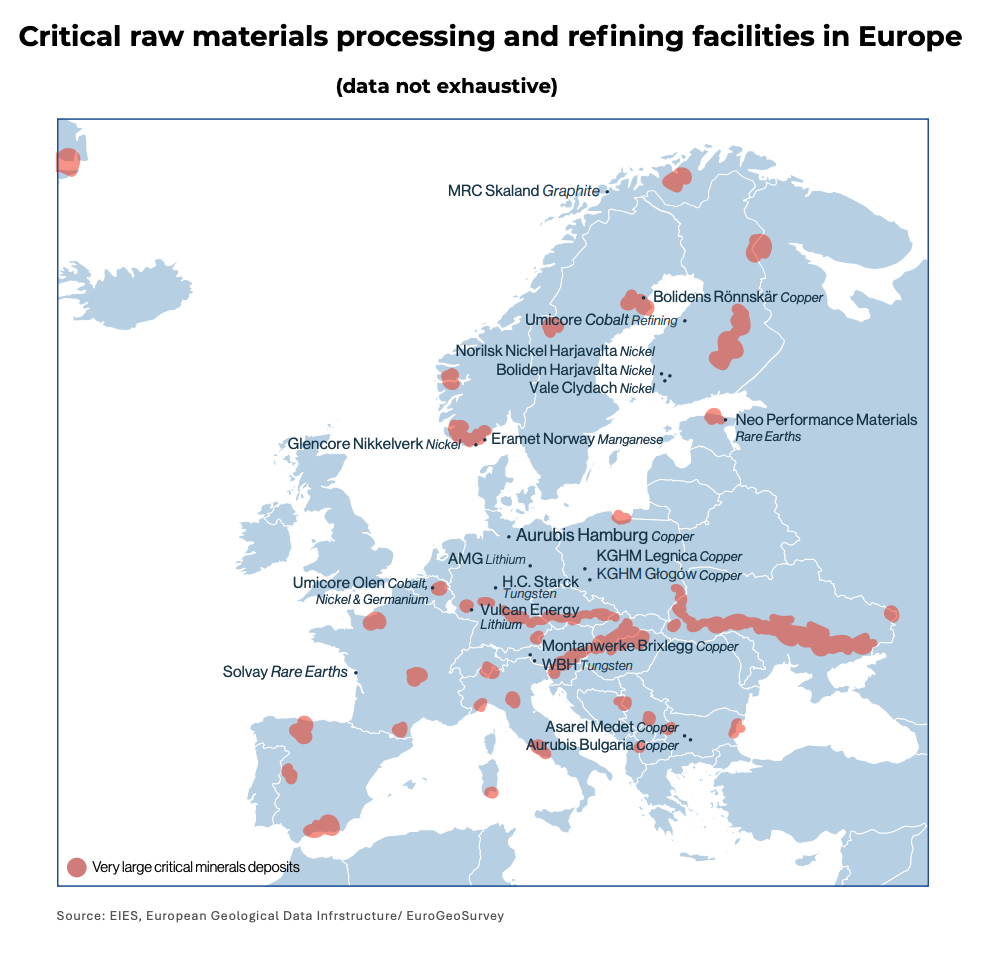The European Union must ramp up support for its critical minerals sector and allow greater state intervention to counter China’s rare earth export curbs, the European Initiative for Energy Security (EIES) said Wednesday.
In a new report, the EIES urged the EU to earmark “substantial, dedicated” funding for critical minerals in its next budget, drawing from existing energy and decarbonization lines. The group warned that Europe risks falling behind China and the United States, both of which are advancing state-backed mineral strategies.
“As China and the US pursue capital-backed political critical minerals agendas, the absence of a comprehensive European financial architecture exposes the continent’s limitations in catalyzing necessary investment in critical mineral value chains,” the report says.
Europe’s limited mining and refining capacity leaves it vulnerable as Beijing tightens exports of materials vital for both defence and clean technology, from magnets and batteries to wind turbines. China’s restrictions come as the EU steps up rearmament in response to Russia’s war in Ukraine.
To close the investment gap, the EIES proposed creating a European Minerals Investment Network (E-MIN) — a permanent platform connecting investors, industrial buyers, and project developers across Europe and allied nations. The network would coordinate financing and risk-sharing, bridging the divide between policy goals and private-sector appetite for risk.

“We can no longer afford a piecemeal approach,” executive director Albéric Mongrenier said in a statement. “E-MIN would turn policy ambitions into impactful projects and secure Europe’s strategic autonomy.”
EIES Head of Research and Policy Petya Barzilska added that even sound projects struggle to close due to financial, political, and regulatory barriers. Greater transparency and coordination, she said, would help build trust and unlock capital for these critical supply chains.
Need to match rivals
The group called on European institutions such as the European Bank for Reconstruction and Development and the European Investment Bank to take larger equity stakes in mining projects, following the US government’s recent investment in rare earths producer MP Materials (NYSE: MP).
China tightened its grip on rare earth exports in April, adding seven elements and related products to its control list. Exporters must now secure government licences regardless of the buyer’s nationality, leading to customs delays and growing concern among EU manufacturers.
In response, Brussels has identified 13 strategic projects to source critical minerals from outside the bloc and plans to build a strategic reserve modelled on its oil and gas stockpiles. Yet implementation has lagged, prompting EIES’s call for immediate, coordinated financial action.


